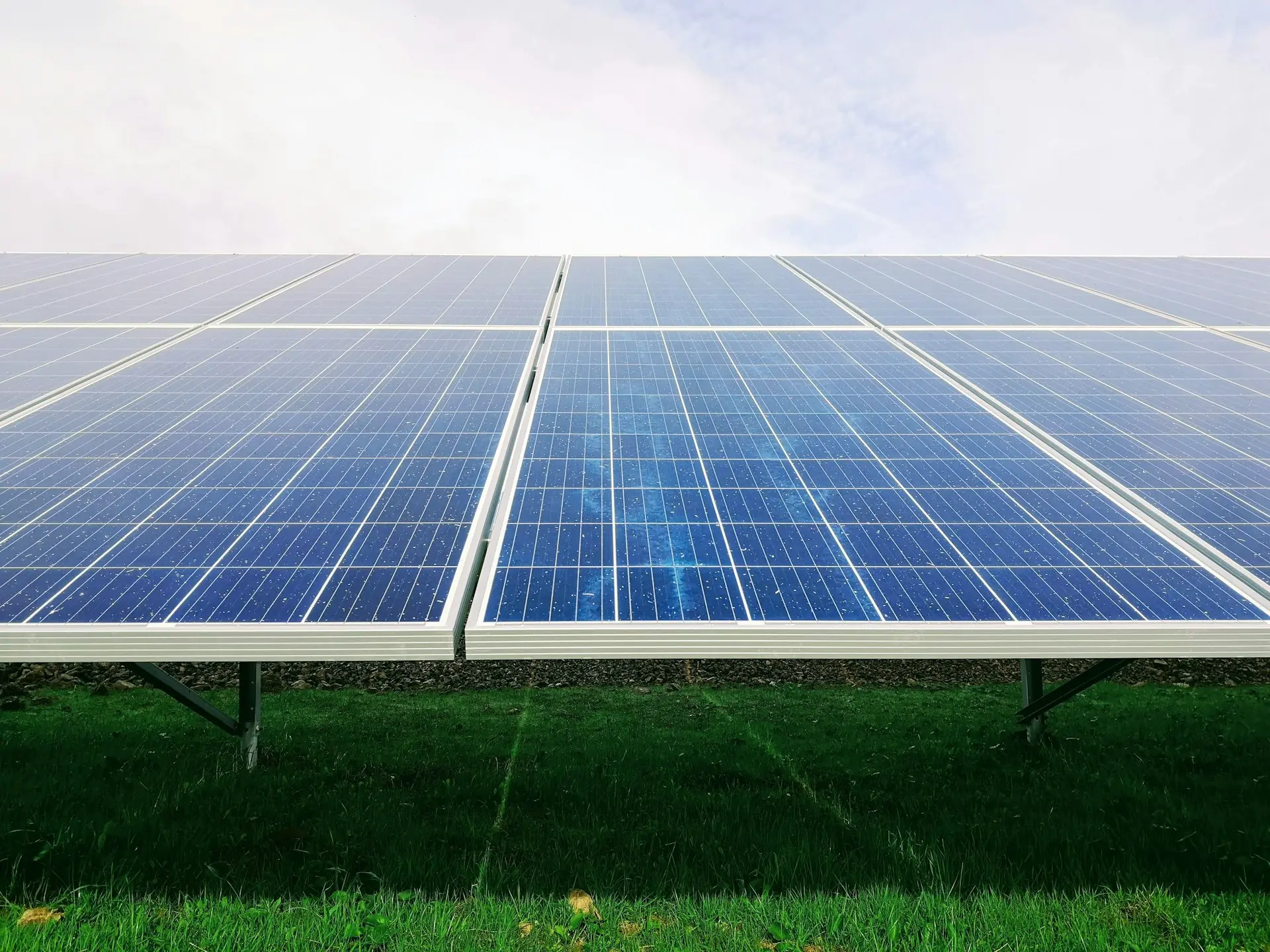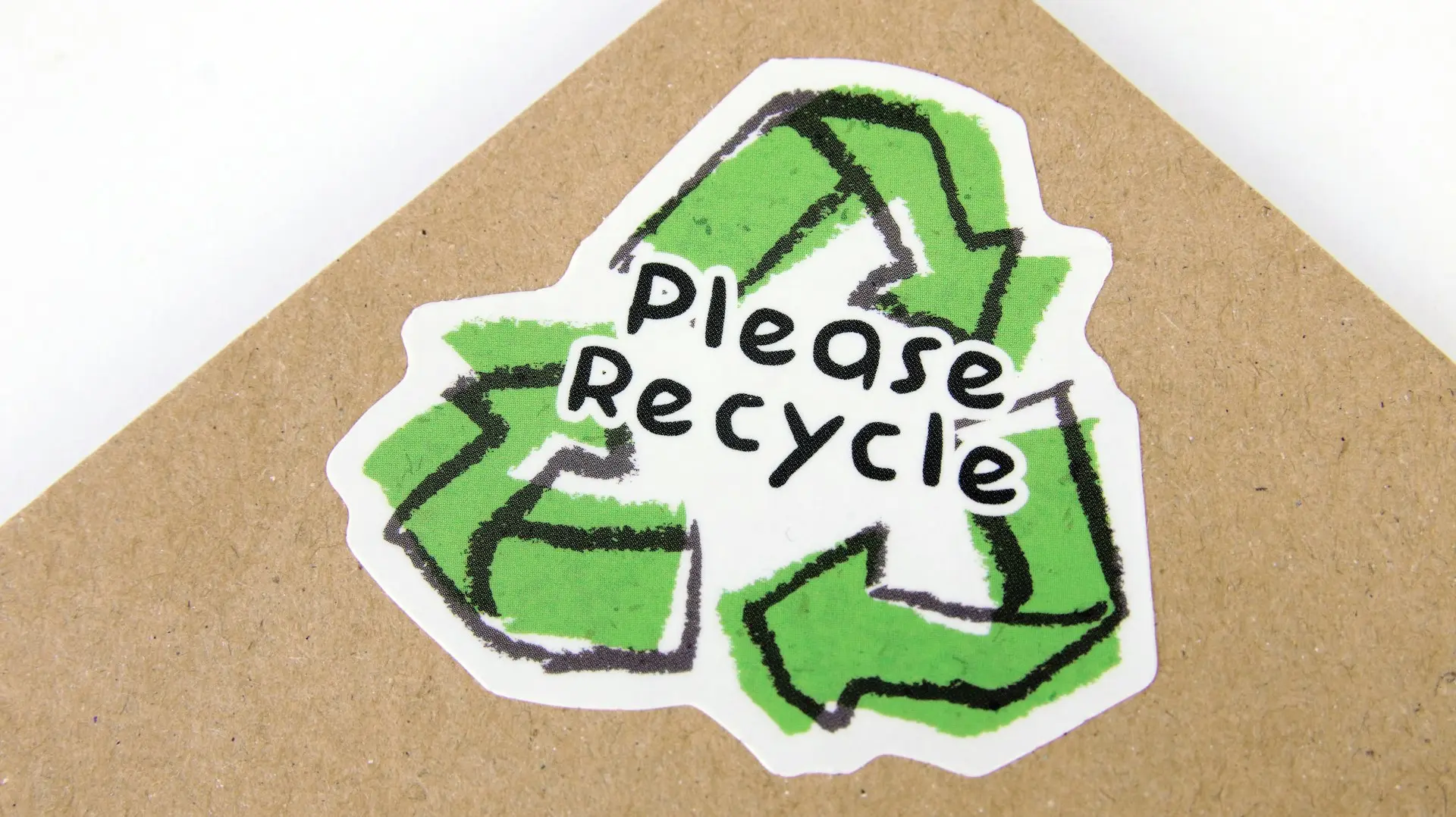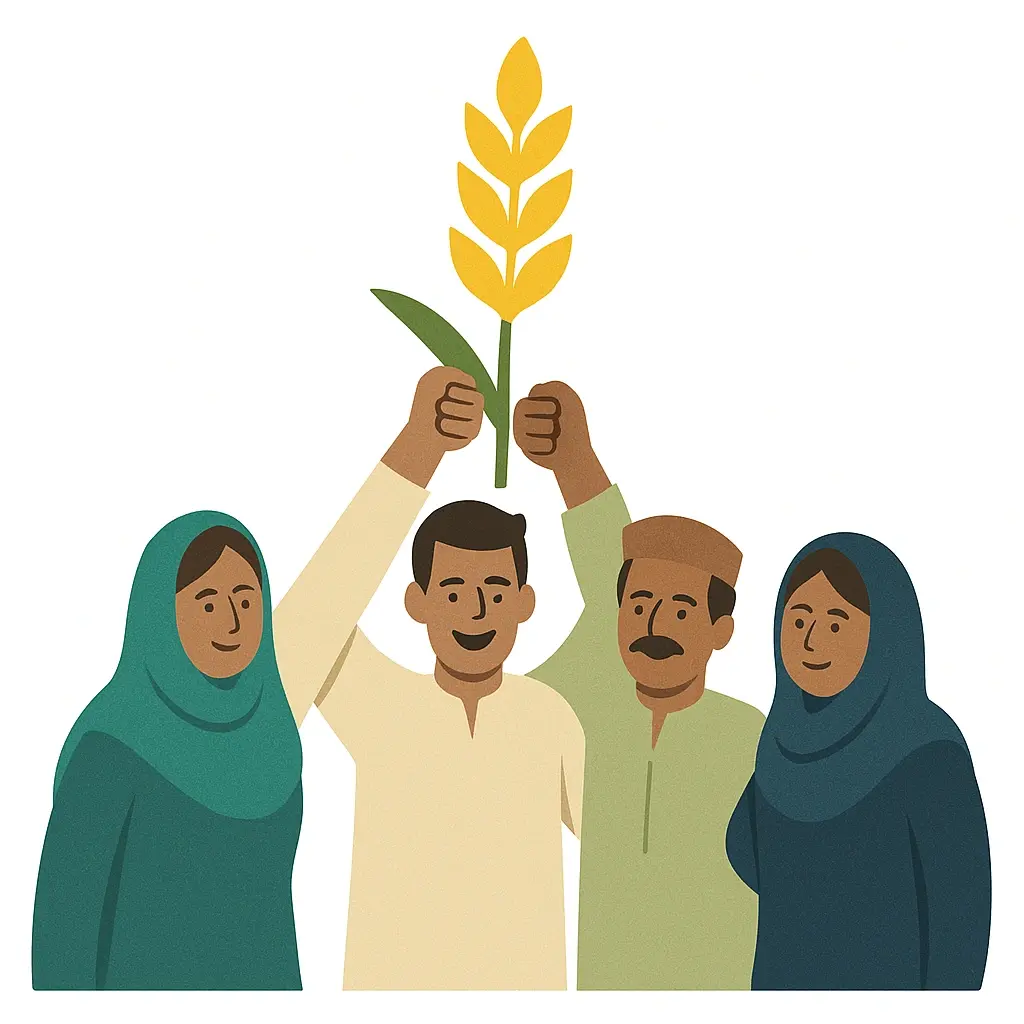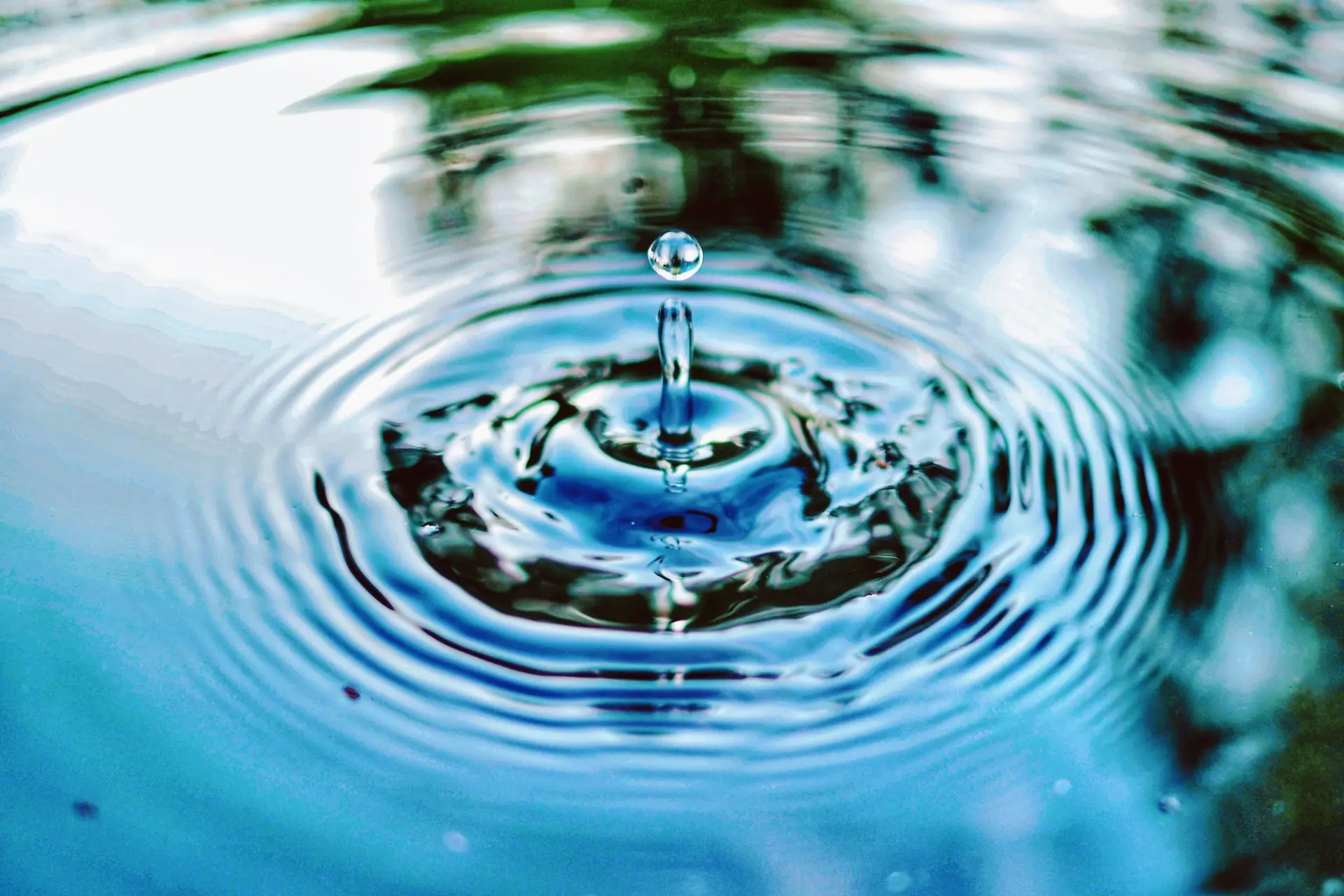
Our Sustainability Commitment
Kamran Flour Mills is committed to powering our operations with renewable energy, achieving near-zero waste, conserving water, and uplifting local communities while delivering pure, nutritious flour.
At Kamran Flour Mills, sustainability is woven into every kernel we mill. From solar-powered operations to zero-waste by-product valorization, we strive to protect the environment, support our people, and nourish the communities we serve.
Why Sustainability Matters
Humanity consumes natural resources 1.7 × faster than Earth can regenerate them, and the food-agriculture sector alone accounts for roughly 26 % of global greenhouse-gas emissions.¹ Milling sits at the nexus of land, water, and energy use, so improving its efficiency has an outsized impact on:
Climate Stability
Lower CO₂ emissions slow temperature rise and extreme-weather events that disrupt crop yields
Resource Security
Efficient water and energy use preserves scarce inputs for future generations and keeps production costs stable.
Public Health
Cleaner processes reduce particulate pollution and safeguard local air and water quality for surrounding communities.
Why Sustainability Is the Future
Sustainability is the future because evolving consumer preferences, tightening regulations, and investor ESG mandates increasingly reward companies that cut carbon, conserve resources, and operate responsibly.
Together, these forces make sustainability a strategic imperative—not a marketing add-on—for any forward-looking manufacturer.
Regulatory Curve
Pakistan’s draft National Climate Change Act targets a 50 % cut in industrial emissions by 2040, while export markets increasingly require carbon disclosures.
Investor Pressure
Banks and private-equity funds apply ESG screens that reward companies with measurable sustainability KPIs, lowering financing costs for green leaders.
Competitive Edge
Energy-efficient plants weather fuel-price spikes better, and zero-waste operations monetise by-products instead of paying disposal fees.
Consumer Demand
Surveys show 60 % of Pakistani urban shoppers prefer brands with visible eco-labels or CSR programmes.
How Kamran Flour Mills Is Adopting & Helping
|
Focus Area |
Action |
Impact |
|
Renewable Energy |
300 kW solar array, scaling to 1.5 MW by 2027 |
Cuts 750 t CO₂ annually and supplies ≈60 % of plant power |
|
Water Stewardship |
Closed-loop grain-washing + rain-harvest tanks |
Reuses 85 % of process water, saving 1 million L/year |
|
Zero-Waste Milling |
Bran, germ, shorts sold for feed & health foods |
Diverts 98 % of kernel mass from landfill |
|
Energy Efficiency |
IE3 motors, VFDs, smart lighting |
Lowers kWh/tonne by 18 % since 2018 |
|
Community CSR |
5 000 fortified-atta school meals monthly + 2 000 trees planted/year |
Improves child nutrition and local air quality |
Planned: Kamran will publish quarterly Sustainability Dashboards and invites third-party audits, proving that heritage milling can thrive while championing a low-carbon, resource-smart future for Pakistan.
¹ UN FAO, Food Systems and Climate Report, 2024.
² Gallup Pakistan, Urban Consumer Sustainability Survey, 2023.
Renewable Energy Integration
300 kW on-site solar farm
already offsets 35 % of annual electricity demand.
1.5 MW expansion plan
approved; projected to cover 60 % of plant load and cut 750 tons of CO₂ each year.
Hybrid Batteries Integrations
Hybrid solar-battery system stabilizes voltage, reducing grid outages and diesel-gen dependence.
Near-Zero Waste Milling
|
By-product |
Repurposed As |
Annual Diversion |
|
Bran |
Cattle & poultry feed |
4,800 t |
|
Wheat Germ |
Health-food additives |
350 t |
|
Shorts & Middlings |
High-fiber bakery blends |
2,100 t |
Result: > 98 % of the wheat kernel is converted into food or feed, keeping organic waste out of landfills.

Circular Packaging
- Consumer bags use 30 % recycled LDPE and are fully recyclable through partner take-back points.
- Industrial sacks switch to woven PP with mono-material liners, simplifying downstream recycling.
- Pallets are heat-treated and recovered under a closed-loop pooling system.

Community & Workforce Impact
- CSR Flour-Donation Program supplies fortified atta to 5,000 school lunches each month.
- Skill-building scholarships fund technical diplomas for local youth in milling technology and food science.
- Annual “Green Village” drives plant 2,000 native trees along G.T. Road and nearby schools.

Water Stewardship
- Closed-loop grain-washing recycles 85 % of process water via micro-filtration and UV sterilization.
- Rainwater-harvesting tanks provide non-potable wash-down water, saving 1 million L annually.
- Effluent is treated to meet Punjab EPA discharge standards before release or irrigation reuse.
Continuous Improvement Targets (2025 – 2030)
|
Focus Area |
2025 Baseline |
2030 Goal |
|
CO₂ Intensity |
0.28 kg CO₂/kg flour |
−40 % |
|
Water Use |
1.8 L/kg flour |
−25 % |
|
Renewable Energy Share |
35 % |
>70 % |
|
Waste-to-Landfill |
2 % of total mass |
<1 % |
Quarterly audits and public sustainability reports keep us accountable to these goals.
Join Our Green Journey
Whether you’re a retailer seeking eco-responsible suppliers or a consumer who values planet-friendly choices, partnering with Kamran Flour Mills means backing a greener, cleaner future for Pakistan.
Contact our sustainability team at info@kamranflourmills.com to collaborate, audit our plant, or learn more about our initiatives.
Frequently asked questions
Sustainability
1. How much of Kamran Flour Mills’ energy comes from renewable sources?
Our on-site 300 kW solar farm already supplies 35 % of our annual electricity, and an approved 1.5 MW expansion will lift that share to about 60 % by 2027.
2. What happens to milling by-products such as bran and germ?
More than 98 % of every wheat kernel is reused: bran and shorts become high-fiber animal feed, while germ is sold to health-food processors—keeping almost all organic waste out of landfills.
3. How does the mill conserve water?
A closed-loop grain-washing system recycles 85 % of process water, and rain-harvest tanks provide non-potable wash-down water, saving roughly 1 million litres per year.
4. Are your consumer flour bags recyclable?
Yes. Retail packs contain 30 % recycled LDPE and are fully recyclable through partner take-back points, while industrial sacks use mono-material woven PP to simplify downstream recycling.
5. How do you measure and report carbon emissions?
We track Scope 1 and Scope 2 CO₂ using ISO 14064 guidelines, audit the data annually, and publish key indicators—such as CO₂ kg per tonne of flour—in our public sustainability report.
6. What community programs do you support?
We donate fortified atta to feed 5,000 schoolchildren monthly, fund technical scholarships for local students, and plant 2,000 native trees along the G.T. Road corridor each year.
7. Do you have formal sustainability targets?
Yes. By 2030 we aim to cut CO₂ intensity by 40 %, reduce water use per kilogram of flour by 25 %, and lower waste-to-landfill to under 1 % of total mass.
8. Can customers visit or audit your sustainability initiatives?
Absolutely. We welcome retailer and NGO audits, offer guided plant tours, and provide full data packets on request—just email info@kamranflourmills.com to arrange a visit.